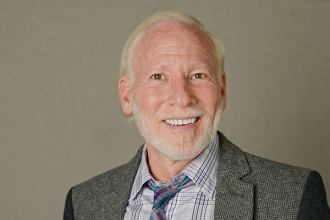Lecture Series
ALL is pleased to present a new monthly lecture series on Artificial Intelligence (AI). Our presenters are experienced in a specific sector and speak about current developments in AI-powered technology.
The lectures begin in March 2024 and continue through to the end of the year. Subsequent lecture dates and venues are announced as they are confirmed.
March
Bellingham Cruise Terminal, 1 - 3 p.m.
Thursday, March 7, 2024
$20
Artificial Intelligence (AI) is rapidly developing and is projected to transform our world. While we may think it’s a thing of the future, many of us are not aware that it’s already embedded in our daily lives. A significant number of people have a limited understanding of the basic concepts behind the technologies, how they work and the role they play in our lives today. The strange language only makes it more confusing.
The increased use and benefit of AI are being welcomed in many different fields, but alongside is a growing concern of the current and long-term existential risks. Given the fundamental impacts and possible consequences these technologies are and are going to have on our lives, it’s crucial for all of us to have a better understanding of AI.
This lecture includes:
- Major innovators behind technologies such as Facebook, OpenAI and Tesla.
- An explanation of the basic concept of AI and how it works.
- An overview of the most important and often used technical terms.
- The use of AI in areas of our lives, e.g., healthcare, business and finance.
- The increased application of AI to generate words, images, videos and audio.
- Some of the inherent dangers.
We end by having fun playing with real-time demos of relevant AI tools. There is time for questions at the end of the lecture.
Registration ends: March 1, 2024
Presenter: Shawn Kemp
Image

Shawn Kemp has a degree in industrial design. As an entrepreneur and innovator, he helped launch dozens of products including the very first Xbox website. Today, as a technologist, he works with companies and non-profits focusing on user experience, community organizing and data. His work embraces the AI paradigm shift that is impacting every aspect of a business.
On a personal level, he has been inspired to produce artwork using cutting-edge generative algorithms and precision laser technology. Pushing the boundaries of traditional art, AI allows him to merge the organic beauty of math with the precision of modern science.
April
Bellingham Cruise Terminal, 10 a.m. - noon
Thursday, April 4, 2024
$20
The emergence of Artificial Intelligence (AI) in healthcare has been groundbreaking, reshaping the way we diagnose, treat and monitor patients. Dr. Geist gives an overview of how AI is used in healthcare today and talks about the different ways it’s already benefiting patient care.
He discusses the rapidly emerging applications of AI and the impact they are going to have on the delivery of healthcare. He explores how the use of AI is projected to increase the accuracy of diagnoses, provide better treatment plans and enhance preventive care -- all of these with the main aim of improving a patient’s outcome.
Dr. Geist gives a high-level review of key concepts in machine learning that are relevant to understanding the application of AI in healthcare.
With the numerous benefits of using this technology there are risks and challenges. Dr. Geist touches on the main clinical, social and ethical risks posed by applying AI in healthcare.
This aim of this lecture is to provide a simple, easy-to-understand review of AI in healthcare. You do not need to know anything about computer science or healthcare.
Registration ends: March 29, 2024
Presenter: Dr. Michael Geist
Image
Dr. Michael Geist is a practicing internist in Bellingham. In addition, he is an associate Chief Medical Information Officer at PeaceHealth and has almost 30 years experience in healthcare IT.
Register for Healthcare: The Current and Future Use of Artificial Intelligence
May
Bellingham Cruise Terminal, 6 - 8 p.m.
Thursday, May 9, 2024
$20
Artificial Intelligence (AI) is likely to be another massive technological leap after the advent of computers and the internet in the past century. It has the potential to advent new business models, transform industries, reshape people’s jobs, boost economic productivity and change the governance system at all levels of government. This is a fast-moving revolution, which has the similar potential to cause unknown havoc for the human race as well. Every segment of society as we know is challenged to comprehend a meaningful analysis of this radical change and its implications for our livelihood, survival and civility in coming decades.
There has been much debate and investigation into the use of AI in the public sector. While there are significant potential benefits of AI for the public sector, there is also a need to proceed with caution where human judgement, once removed from humans to machines, can ring true of the slang ‘garbage in garbage out’ in absolute data-based decision making.
This series of lectures envisaged by Academy for Lifelong Learning at WWU are an inquiry and debate into the promise of benefits and limitations to let go of human intelligence to an alternate reality of re-imagining the workings of the whole universe, about which we humans know very little. The very words ‘artificial intelligence’ is a huge suspect in the current technology-intensive world, as this is being imagined replacing ‘real intelligence’. The immediate imagination is that governments (and individuals, businesses) can benefit by use of Artificial Intelligence to automate their workflows and minimize redundant tasks such as:
- Improving service delivery.
- Enhancing decision-making
- Increasing efficiency.
- Reducing costs.
- Increased transparency and accountability.
Artificial Intelligence may also present hazards of un-controllable one-way decisions made by machines. Some of the public sector’s dangers may be:
- Decision-making requires complex human problems and individualized judgement.
- How ‘artificial’ collaboration would be effective across multiple data sources.
- Situations where data is limited or the data is not fit for purpose.
- AI systems may lack the ability to build trust and establish relationships with citizens.
- Regulatory oversight integration.
- An ultimate possibility of losing human control over the machinated decisions is the impacting of lives of people and their individuality.
--- Satpal Singh Sidhu County Executive
Registration ends: May 4, 2024
Presenter: Satpal Singh Sidhu
Image

Satpal is currently serving his second term as Whatcom County Executive. His professional experience includes work as an engineer, project manager, business executive, educator and small business owner. He has served as the Dean of Engineering at Bellingham Technical College. He is a Fulbright Scholar and holds a B.S. in Electrical Engineering and an M.B.A.
His engineering background has naturally led him to be interested and stay abreast of the development and future of AI. In his position as County Executive, he understands the significant role it's going to play in all aspects of the government sector and how it can be best implemented to be both effective and secure.
Register for Lecture Series: How AI Can Impact Government Functioning and Jobs
June
Bellingham Cruise Terminal, 1 - 3 p.m.
Thursday, June 13, 2024
$20
Will machines be able to practice authentic ethical reasoning and/or emotional intelligence and apply these understandings to subsequent behavior, or are humans the only species that can engage in ethical reasoning and deliberation? What is our role in the development of these machines to ensure ethics is not left behind?
If ethics is considered to be solely a matter of intelligent rationality, and we accept that robots can be reasonable, sensible and able to exhibit a sound sense of judgement -- we may conclude that machines bear the capacity to engage in both ethical decision-making and behavior.
We take a deeper dive into the matter of roboempathy and carebots. Is there a meaningful distinction to be made between authentic caring and artificial caring when we turn fellow human beings over to robots? Would you be able to tell the difference?
Would decisions related to healthcare become increasingly mechanized or industrialized? What role -- if any -- should government play in the regulation of this essential dimension of AI?
Registration ends: June 7, 2024
Presenter: Dr. Craig Dunn
Image

Dr. Craig Dunn is a Distinguished Professor of Business and Sustainability at Western Washington University, after serving as Dean of the College of Business and Economics. His research interests include managerial ethics and values, corporate social responsibility and the meaning of work. His writing has appeared in Business Ethics Quarterly, Mapping Strategic Thought, International Journal of Leadership Studies and many more. Dunn also has a TEDx Talk that can be found on YouTube titled Biointegrity: The Truth in Nature.
Craig is deeply committed to advocating that the conception of morality, promoted by feminist moral philosophy, is given generous consideration in higher education -- and in life.
Lectures will continue in the fall, and will be announced in August 2024.